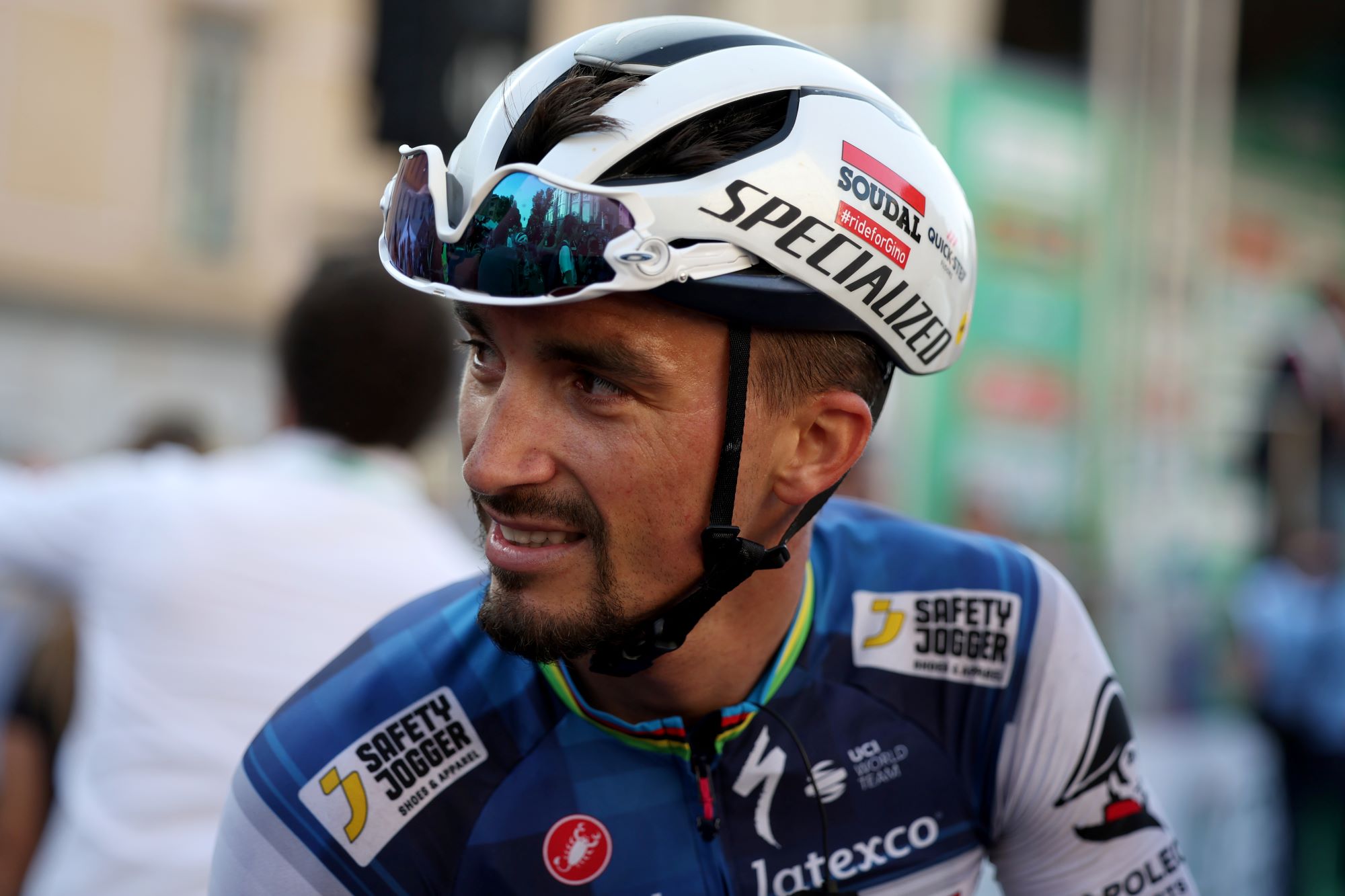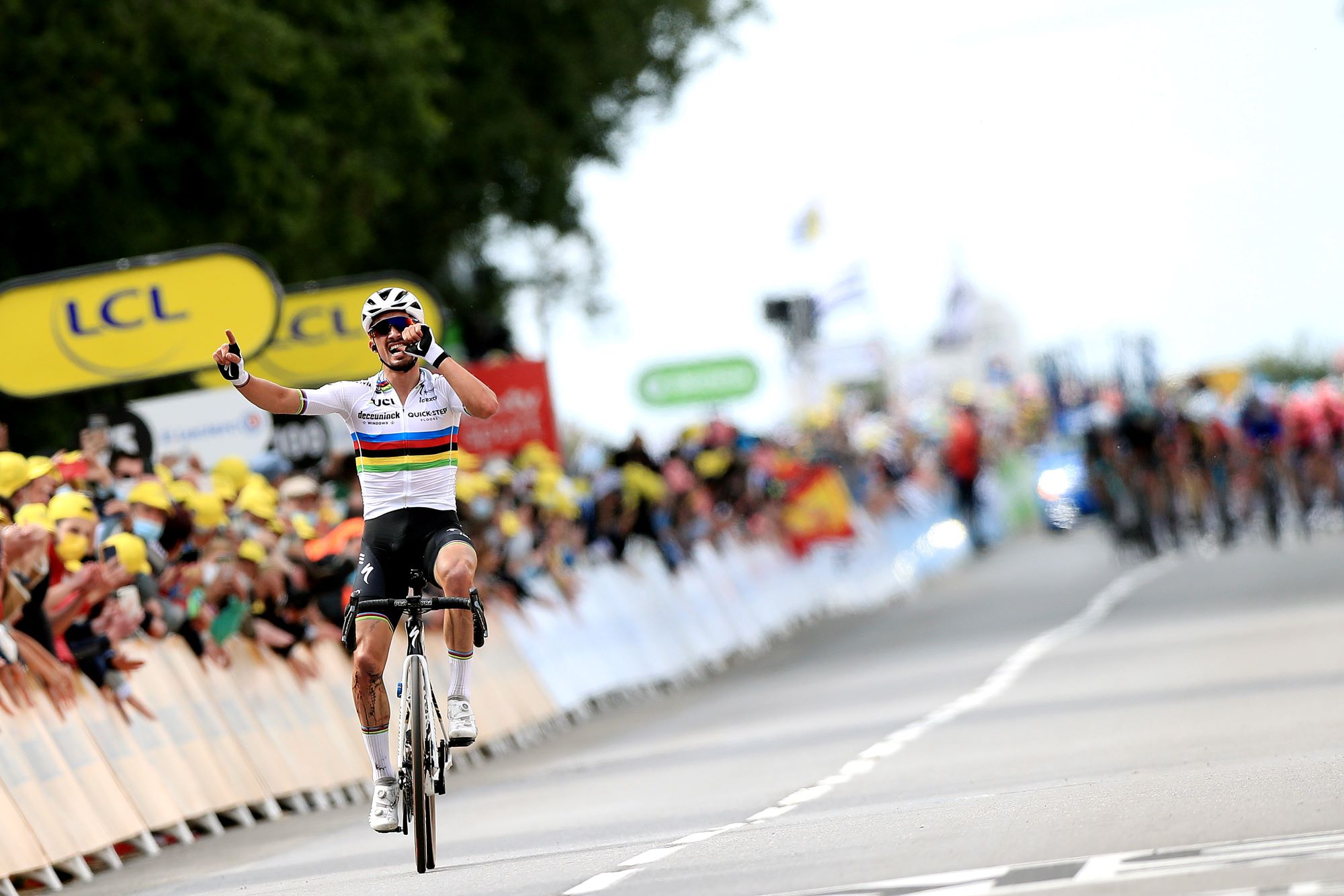
Several years ago, I worked in higher education at a prominent UK university. At that time, I was also a member of Unison - one of Britain’s largest trade unions - whom you could call upon for advice should you ever have the misfortune of experiencing bullying in the workplace.
By Unison’s definition, workplace bullying is "persistent offensive, intimidating, humiliating behaviour, which attempts to undermine an individual or group of employees". It continues: "Bullying is generally carried out face-to-face but can also occur in writing by telephone, text messaging, email and on social media."
In most workplaces, bullying wouldn’t be tolerated.
So why is elite sport any different? Why should professional athletes have to tolerate being publicly undermined in the media by their employer?
Soudal Quick-Step boss Patrick Lefevere has developed a reputation as being one of the biggest culprits of criticising his riders. Lefevere has never been one to shy away from speaking his mind, even if it involves getting personal in relation to a rider, and his latest comments directed at former two-time road World Champion Julian Alaphilippe are yet another example of that. He has done it before, with Alaphilippe, and with Sam Bennett, but it has happened again.
On this occasion, Lefevere brought Alaphilippe’s wife, the Tour de France Femmes' race director Marion Rousse, into the picture as well as suggesting he drinks alcohol excessively.
"Too many parties, too much alcohol... Julian is seriously under the influence of Marion Rousse," Lefevere said when describing Alaphilippe’s issues to Humo magazine. "Maybe too much. Julian is a young dog full of energy — you should let him cross in the yard every now and then. And you must also say: this far and no further. There is still a bad boy inside him." He went on to claim that he would "fire him on the spot" if it continues.
Since winning his second world title, it would be fair to say that Alaphilippe hasn’t hit the high notes he’s capable of in a race situation. Various factors have got in the way, including several major crashes as well as bouts of illness, but few would bet against him returning to form at some point, perhaps at a different team away from his scathing boss.
Inevitably a great deal is expected of riders of his status, particularly when they’re tied to high earning contracts - according to L’Equipe, Alaphilippe was given a raise of more than 2 million euros after landing two rainbow jerseys - so underperforming is going to generate some criticism.
But alongside that there is surely a line that needn't be crossed? Especially if it turns sour and personal.
Rousse issued her own response to Lefevere's public attack on Wednesday, saying: "Whatever Mr Lefevere's feelings towards me, it is unacceptable to attack our private lives as he is doing... Please now stop talking indiscriminately and show more respect and class."

At the Tour Down Under, Alaphilippe told Cycling Weekly that he had spent the week building "a good base" in order "to improve from now to my goals." But, he will be out of contract at the end of the current campaign and said "I don’t know where I will be next year, if I continue in the team or if I continue cycling". Comments in the press about being fired "on the spot", surely, cannot help.
Lefevere’s comments have some similarity to Manchester City Football Club manager Pep Guardiola’s recent public criticism of midfielder Kalvin Phillips.
Guardiola accused Phillips of being overweight on his return from the 2022 FIFA World Cup. The midfielder recently left the club on loan and told journalists that his confidence had taken a big knock after his managers belittling comments. Guardiola subsequently apologised in a press conference.
If in Alaphilippe and Phillips’ case athletes do indeed have personal issues, being employed within the public eye should not mean their employer gets a free pass to undermine them in the spotlight of the media and to make those personal issues public.
Lefevere is far from being the only guilty party in cycling. Israel-Premier Tech boss Sylvan Adams has very publicly criticised Chris Froome in the past and ridiculed his performances.
Equally, both team bosses have repeatedly expressed their respect for their riders although that hasn’t detracted from the scalding criticism both have received.
In the wake of Lefevere’s latest bitter attack on a rider, Australian pro Chloe Hosking took to social media to call upon the riders' union, the CPA, to make their stance against this behaviour clear. Cycling Weekly has reached out to the CPA to get their view on the topic.
In an age in which mental health awareness is frequently discussed within the workplace, perhaps these bosses need an ounce of education. Riders like Alaphilippe deserve better, and the public undermining of sports stars needs to stop.
pic.twitter.com/gL6GLQEa0QFebruary 21, 2024
Update: Patrick Lefevere told the Belgian newspaper Het Nieuwsblad that he made the comments about Julian Alaphilippe's private life in 2022. Nevertheless, he did not apologise for the comments made about Rousse.
"I am considering making a statement on Twitter, because once again my words in English – without the context of the interview – sound heavier than I said them in Dutch," he told the Belgian daily.
"What did I say? José De Cauwer is my witness: not last year [the conversation he had with Alaphilippe], but in November 2022 I took Julian Alaphilippe aside in Diegem [at a team meeting]. To say: things cannot continue like this. Either I let you go, or we’re going to do things differently from now on. My message was: ‘talent alone will no longer work. You get older and have to live differently.’ Julian has performed big numbers in the Tour, but at the time they were no other, or less pronounced, top performers such as Mathieu Van der Poel, Tadej Pogačar and Primož Roglič that he is now competing against.
"There was a period with too many parties, but I have to say: he hasn’t had a drink since our conversation in November 2022. Not within the team and not outside the team. I have spoken to people who were with him on the internship in Sierra Nevada: not a drop more. And training has never been a problem, he has always continued to do so.
"At a certain point Julian lost his self-confidence. He remains valuable to the team. He says that press conferences stress him out, but he is actually a perfect sandwich man. He recently went to Cologne for a publicity assignment at Safety Jogger, no problem. Publicity-wise, he remains God in France. Only: I also want results and there have been too few. It must be more than the Faun-Ardèche Classic."







